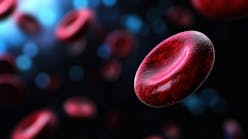Researchers identify new gene mutations linked to colorectal cancer in African American patients
Case Comprehensive Cancer Center researchers have identified new gene mutations unique to colon cancers in African Americans—the population with the highest incidence and death rates of any group for this disease. The findings were published recently in Proceedings of the National Academy of Sciences (PNAS). The researchers hope the findings ultimately lead to more precise molecular diagnostic tests and treatments for African American patients.
The scientists used DNA sequencing to compare 103 colorectal cancer samples from African American patients with 129 colorectal cancer samples from Caucasian patients, all of whom had received care at UH Case Medical Center in Cleveland. The scientists examined 50 million bits of data from 20,000 genes in every cancer.
From these data, investigators first uncovered 20 new gene mutations in the colorectal cancers of African Americans that never before had been identified in patients with this disease. They then confirmed that 15 of these gene mutations preferentially affected the African American patients. Just over 40 percent of cancers in African Americans carried mutations in one or more these genes. In addition, the scientists found these mutations were 3.3-fold more common in African American cancers than in colorectal cancer tissues from Caucasians.
The investigators particularly zeroed in on mutations in two of these 15 genes, EPHA6 and FLCN, detected exclusively in African American patients. EPHA6 belongs to a family of proteins linked to cancer; this study marks the first time this gene has been implicated in colorectal cancer. In addition, individuals born with FLCN mutations are known to be susceptible to certain cancers. EPHA6 gene mutations were detected in 5.8 percent of colorectal cancers of African American patients, and FLCN in 2.91 percent. The researchers hope the findings ultimately lead to more precise molecular diagnostic tests and treatments for African American patients.
Read the study abstract at the PNAS website





